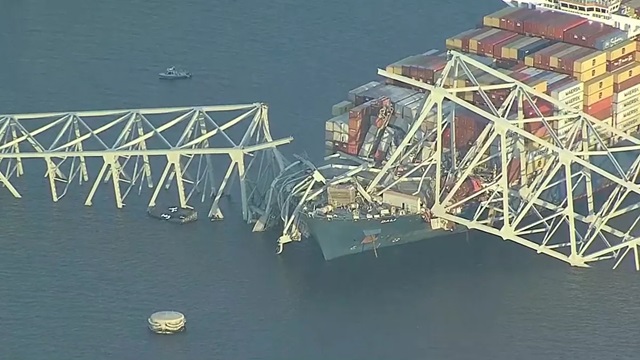On March 5, 2024, a significant disruption rippled through the digital realm as both Facebook and Instagram went down, inciting a flurry of concerns among their global user base. This widespread outage, extensively reported by major outlets, adversely affecting over two billion daily users who faced issues ranging from login errors to non-refreshing feeds. As the story developed, the online community’s response was swift, with hashtags like #facebookdown and #instagramdown trending across various social media platforms.
Table of Contents
User Impact and Response
As the digital landscape grappled with the sudden outage of Facebook and Instagram, users and businesses alike were plunged into a state of disarray. The impact was immediate and widespread:
- User Frustration: Social media users took to Twitter, voicing their vexation and bewilderment as they encountered persistent login issues and non-functional apps. The hashtag #facebookdown became a digital beacon for those affected, signaling a shared experience of inconvenience and disruption.
- Business Disruption: For businesses that depend on Facebook and Instagram for marketing and sales, the outage was more than a mere annoyance—it represented a halt in operations and a potential financial setback. The interruption underscored the risks of over-reliance on a single platform for business functions.
- Seeking Alternatives: Amidst the outage, there was a notable shift as users and businesses began seeking refuge and continuity on alternative platforms.
X users right now:#instagramdown pic.twitter.com/FxkBtwFes5
— Sara (@sara_pirzadaa) March 5, 2024
The downtime not only affected direct social media interactions but also had a knock-on effect on other Meta-owned services, exacerbating the situation for those reliant on the broader ecosystem of the tech giant’s offerings. This event has served as a stark reminder of the necessity for a robust disaster recovery strategy and the importance of platform diversification for anyone operating in the digital space.
Meta’s Official Response
Throughout the incident, the company emphasized that there was no indication of compromised user data, a key concern for the millions affected. Despite the resolution of services, the absence of a comprehensive explanation from Facebook leaves questions about the underlying vulnerabilities that led to the shutdown.
Comparative Outage Analysis
In an environment where digital reliability is paramount, the simultaneous outages of major online services raise questions about the robustness of internet infrastructure. On the day Meta platforms faced disruptions, Google’s services, including YouTube and Gmail, also encountered issues. While there is no confirmed connection between these outages, the coincidence suggests a potential systemic vulnerability or a shared reliance on similar technological frameworks that may be prone to failure.
The lack of a definitive cause from Meta, coupled with the occurrence of separate issues on Google’s platforms, underscores the complexity and interconnectedness of the digital services ecosystem. These incidents serve as a stark reminder of the cascading effects that can arise from technical difficulties within or across such networks. As users increasingly question “facebook and instagram down?”
Industry and Expert Opinions
In the aftermath of the recent service interruptions on Meta’s platforms, industry experts and policymakers have been vocal about the broader implications of such outages. Their opinions coalesce around several key areas of concern:
- Regulatory Oversight:
- Calls for stricter regulation have gained momentum, with some government officials advocating for more rigorous oversight of Facebook’s operations to ensure reliability and accountability.
- The need for greater transparency from tech giants has been emphasized, with demands for detailed explanations about the causes of outages and preventive measures.
- Infrastructure and Data Privacy:
- There is a consensus that Facebook must invest in more resilient infrastructure to mitigate the impact of such disruptions.
- Data privacy concerns have been reignited, spotlighting the necessity for clearer transparency in the platforms’ operational procedures.
- Decentralization and Disaster Recovery:
- The vulnerability of centralized platforms has led to discussions about the potential benefits of decentralized social media alternatives.
- The importance of robust disaster recovery plans has been highlighted to prevent future service outages and to minimize their effects when they do occur.
Amidst the technical analyses and policy debates, Elon Musk’s response stood out as he humorously commented on the situation via his social media platform, showcasing the lighter side of the industry’s reactions to the outage.
Throughout the discourse, the repeated queries of “facebook and insta down?” serve as a reminder of the platforms’ significant role in daily life and the critical need for stability in digital services.
Conclusion
The events of March 5, 2024, have underscored the central role that platforms like Facebook and Instagram play in our global digital ecosystem, bringing critical activities to a standstill during outages. With the personal exasperation and business disruptions caused by the unexpected downtime, this incident serves as a catalyst for renewed discussions on infrastructure resilience and regulatory oversight. As digital interconnectivity becomes increasingly ubiquitous, the significance of such platforms in our daily lives cannot be overstated, emphasizing the need for effective disaster recovery strategies and diversified communication channels.
To know more keep visiting our website.










